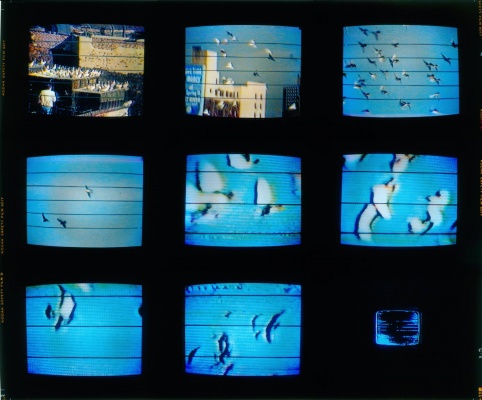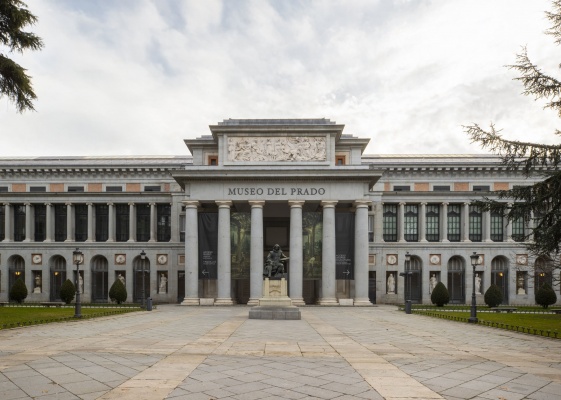Descripción de la Exposición
Ahead of his time, the artist Luiz Alphonsus dedicated himself to creating a theory of national conceptual art – Conceitual Caboclo – in which he captured the Brazilian spirit of urban advancement and political setback of the 60s and 70s. Having taken part in exhibitions that were pivotal in the history of Brazilian art, such as Do corpo à terra (1970), Alphonsus' significant work is now revisited by Galeria Jaqueline Martins in Ambiental enigmático, solo show that exposes the artist's works in light of current issues.
Alphonsus is part of the Tranca Ruas generation, a group of interdisciplinary Brazilian artists who make their works an amalgamation between the conceptual, the political and the poetic and that move between the Cinema Novo, Tropicália and other landmark movements of national culture.
Born in Belo Horizonte, he settled in the Distrito Federal in 1961, one year after the city's inauguration. The artist followed Brazilian cultural flows and, together with Cildo Meireles and Guilherme Vaz, moved in 1969 to the city of Rio de Janeiro, the recently deposed Brazilian capital. His work investigates, in this sense, the exchange between the rationality of an experimental culture project and the poetics of Brazilian existence, expressed in works such as Zona Sul Baixa Flu (1975/81) and Tensão (1972) that, in different media, surface the excitement, familiarity and horror of the promise of violence.
In Besame mucho (1984), a sequence of slides that instill in the viewer a growing anxiety regarding the image of the victim, the executioner and the execution, Alphonsus demonstrates his poetic ability to move between the familiar and the dangerous. The taciturn introduction and emphasis on the tangle of open-air vegetation takes on a new dimension at a time when political repressions are affiliated with social marginalization and environmental racism.
One of the hallmarks of Alphonsus' work is the creation of landscape, both natural and philosophical. In Corte em uma Montanha (1971), he intervenes in nature, bringing to the foreground the insinuation of a horizon behind the mountain. This projection also takes place in the land art series Encontro em um Ponto (1970-1987), where the viewer is invited to imagine the convergence of two lines that disappear behind the horizon line. Although it is not possible to see the meeting point, this conjunction seems attainable to us through the artist's own suggestion.
In one of his most impressive works, Negativo/Positivo, the landscape is inverted to show that an initially empty universe, when exposed to the passage of time, can become full in and of itself. This interest in creating landscapes that span between mirages and convulsions is revisited in current works such as The Universe is not at all what it thinks it is (2018-2019). While the philosophical conceptualization around space exploration was previously based on the material motives of the Cold War, this work echoes the issues surrounding the race to privatize space.
His pieces from the 2000s onwards update the dimensions explored during the 60s and 70s: A criação da linguagem (2012) and A perpetuação da linguagem (2012) resonate the use of words from his previous works, activating the observer's participation in the construction of meaning. Now, however, we are carried beyond the local Carioca political dimension and delivered to the traffic of time and outer space, with writings about the past and the future.
Yesterday/Tomorrow (1974), like Besame mucho (1984), exemplifies the restlessness captured by the artist and materialized in contemporary issues: the money that is erased – anticipating notions of circuits commented on in the 70's – now shows itself even more relevant in a present where physical currency is replaced by virtual options and alternative monetary systems are being created.
Luiz Alphonsus has a personal trajectory that accompanies the biography of Brazil and, therefore, captures the subjective movement of the nation's fears, anxieties and hopes. His critical thinking on the conceptual construction of the global south guides the understanding of the contribution of his entire generation when incorporating popular culture as a cry of freedom from political oppression. At a time when Brazil is acting as a pariah and a symbol of regression, Alphonsus' sensibility takes on a global dimension – not only in the expression of all that frightens, but also in the hope of seeing possible new encounters beyond the horizon.
About Luiz Alphonsus
Born in Belo Horizonte, in 1948. Luiz Alphonsus de Guimaraens lives and works in Rio de Janeiro. He is a photographer, painter, sculptor and multimedia artist. In 1969 he founded the Experimental Unit of MAM – Rio de Janeiro with Frederico Morais, Guilherme Vaz and Cildo Meireles. He also served from 1993 to 1998 as Director of the Escola de Artes Visuais do Parque Lage. As an artist, he participated in exhibitions at important institutions in Brazil: Museu de Arte Moderna do Rio de Janeiro, Museu de Arte Moderna de São Paulo, Instituto Tomie Ohtake (São Paulo), Palácio Imperial do Rio de Janeiro and MAR (Museu de Arte Moderna do Rio). He also took part in some of the most seminal exhibitions of Brazilian experimental art of the 1970s: Do Corpo à Terra (Belo Horizonte, 1970), curated by Frederico Moraes, and ExpoProjeção (São Paulo, 1973), curated by Aracy Amaral, the first group exhibition in video art in Brazil.
Sobre a Galeria Jaqueline Martins
Fundada em 2011 em São Paulo, a Galeria Jaqueline Martins é um espaço de pesquisa, documentação, fomento e exibição da produção artística contemporânea. Propõe estratégias curatoriais colaborativas, que fomentem o diálogo entre diferentes gerações e distintas perspectivas culturais. Mantém como diretriz principal o estímulo às práticas artísticas caracterizadas pelo conceitualismo, pela ênfase nos processos, e pela postura crítica, e muitas vezes subversiva. Desde sua inauguração, a Galeria desenvolve um programa especial de investigação em torno das produções artísticas realizadas durante o período ditatorial no Brasil – em particular nas décadas de 1970 e 1980. Promove uma revisão histórica de processos desenvolvidos a partir de forte resistência intelectual, cuja ousadia e compromisso com a arte transformou a prática no país, mas cuja expressão, no entanto, foi extensivamente negligenciada ao longo das últimas décadas. Ao integrar pesquisas e práticas que confrontam a cena contemporânea em seu programa expositivo, a Galeria contempla revitalizar o debate que compreende ações artísticas como zona de contato para o exercício de mudanças estéticas, sociais e políticas. Em 2020 a Galeria inaugurou seu segundo espaço expositivo, em Bruxelas, com o objetivo de ampliar sua presença na Europa e desenvolver um programa multidisciplinar que promova conexões entre seus artistas e as práticas da arte brasileira em um contexto internacional.

Exposición. 08 may de 2025 - 14 sep de 2025 / MNAC - Museu Nacional d'Art de Catalunya / Barcelona, España

Formación. 30 oct de 2025 - 11 jun de 2026 / Museo Nacional del Prado / Madrid, España